Our people: Herbert and Ruth Tolson “inspired a neighborhood”
The Booker T. Washington Community Center closed its doors in February 1956. It took just over 34 years for ground to break on something to replace it. But the couple whose names adorn the new center, Herbert and Ruth Tolson, could never be replaced.
Moving to Elkhart in 1941 from Detroit, the Tolsons became indistinguishable from the center they ran.
“(The Tolsons’) personality became the Booker T. Washington Community Center,” John W. Bynum wrote in “Ye Will Know Them by Their Fruits” an essay housed in the local history collection at Elkhart Public Library looking back at the BTW Center.
Horace Barnett told the Elkhart Truth in a 2006 article for the 50th anniversary of BTW’s closing that the Tolsons were “a God-save for a generation of families.”
During a March 1975 testimonial dinner at the Ramada Inn in Elkhart, over 240 former BTW Center board members and attendees came together to thank the Tolsons in what was called a “family reunion” by the Elkhart Truth report.
The “most beautiful family in the world,” is how Herbert described everyone in attendance.
Former BTW board member Lloyd Hartzler told the crowd that night, “Never has anyone given so much for so little.”
Lives of social service
A dedication to service brought the Tolsons together.
Both Herbert and Ruth were born in Missouri. They met in the Civilian Conservation Corps, where she was an instructor and he an education advisor.
They moved to Detroit in 1939 to serve as youth advisors for the National Urban League.
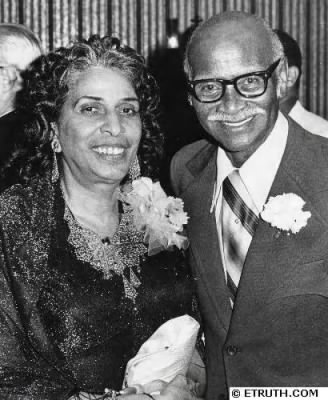
They were hired by the BTW Center board in 1941. Herbert served as executive director and Ruth as program coordinator.
They held those positions until their resignation in 1956. During that time, Herbert stepped away during the last two years of World War II. He served in the Navy, as a driver for President Harry Truman. He attended a graduate program in Atlanta following the war.
A center from cradle to old age
The BTW Center traces its roots back to the settlement house movement near the turn of the century.
Forming in 1921 by the Women’s Christian Temperance Union as the Colored Community Center, it was renamed for Booker T. Washington, the black academician, author and political leader, in 1924. It settled into its best-known location at 409 St. Joseph St. in 1939.
Following the resignation of its director in 1940, the Tolsons arrived in January 1941 and made their mark.
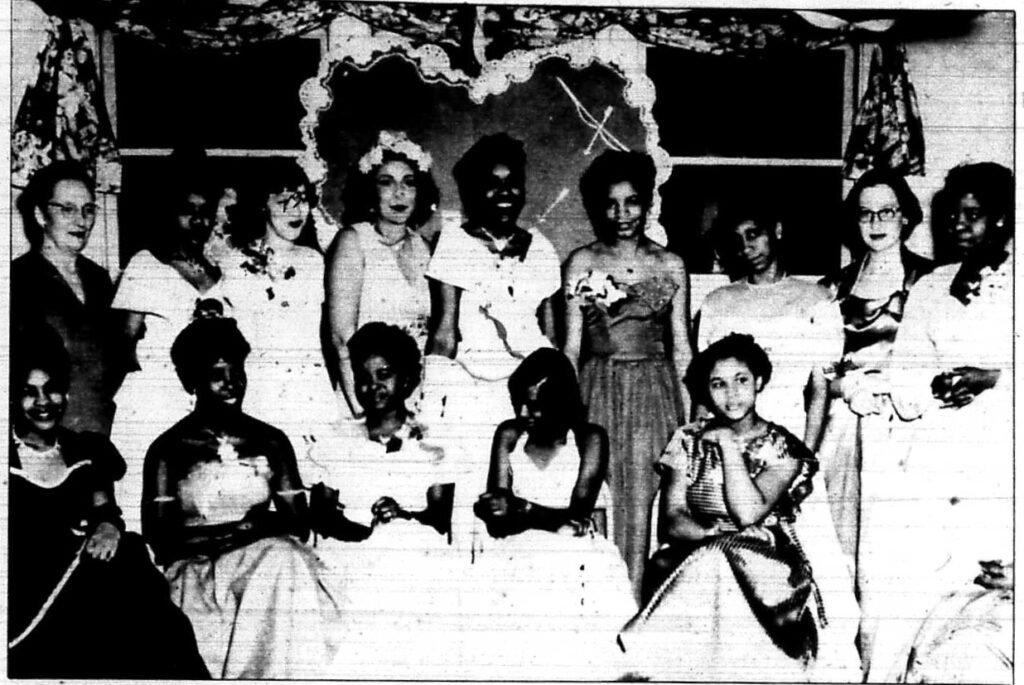
“When we had the center, what affected my family affected your family,” Ruth told Arden Erickson in an August 1986 Elkhart Truth article. “And there was true love.”
The Tolsons ran programs for their neighbors from cradle to old age. A nursery and preschool, after-school programs and social clubs were staples. But dances, trivia nights, sports teams, wellness clinics and more packed the hours at the center. Plus vacation Bible schools and scout troops met there.
The Tolsons, the only paid staff for much of their time running the club, relied on volunteers for help.
They personally drove kids to summer camps. Herbert drove the elderly and expectant mothers to the hospital. They hosted vigils for the sick.
“Elkhartans who grew up here say it was more of a home for some than their ‘real’ home,” Erickson wrote in a March 22, 1975, article for the Truth’s A.M. Magazine.
Movie showings, social hours, and holiday parties brought in people from the neighborhood and the city at large.
The center was more than just activities, too. If someone in the neighborhood needed help with a utility bill, a coat, a meal – the Tolsons were there.
“They were at the center all the time, just giving so much of their time. They were the type of people that pulled and stretched children for their potential. That’s the thing I’ll always remember,” Ola Washington told Truth reporter Jason McFarley in 2006.
That service and dedication was real and sincere.
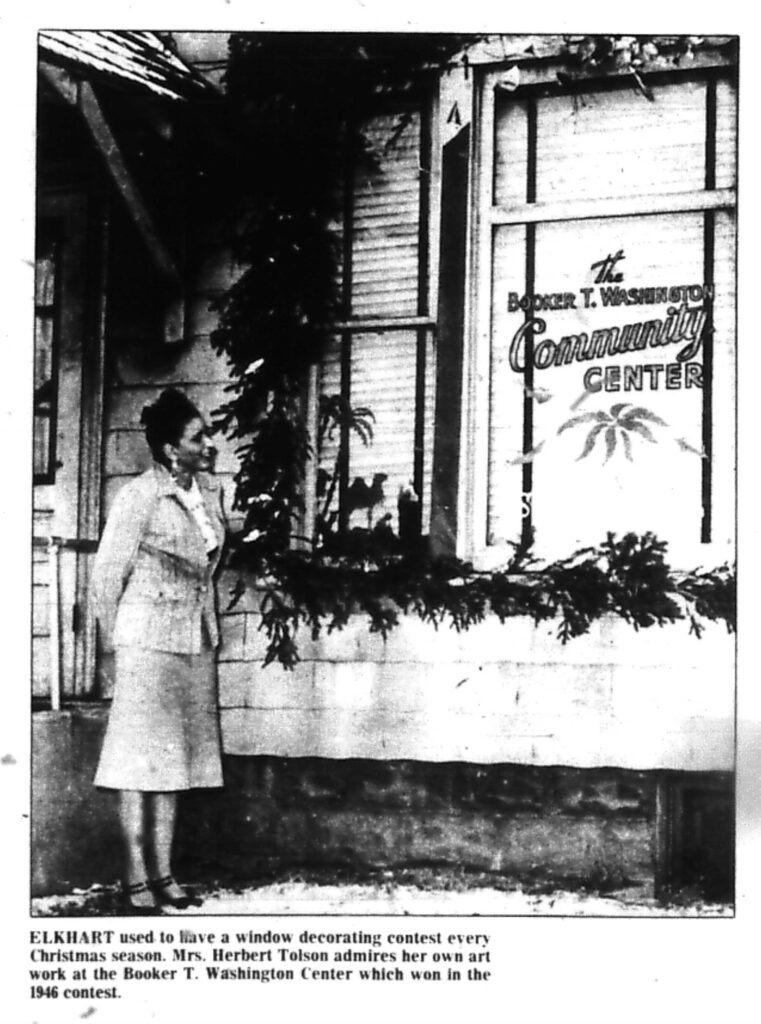
“You give off a certain vibration when you’re willing to help people. You don’t fool people, that vibrations got to be there,” Ruth said in the 1986 retrospective.
During the reunion in 1975, Herbert said he was most proud of the kids that grew up in the center. Those who became doctors, lawyers, professional athletes, bankers and police.
The Tolsons remained humble in their service, even years later.
“I tried to help, but what you did was in you,” Herbert told the audience that spring night.
“When you give love, you get it back,” Ruth added.
“What we were supposed to save”
In the years post-Brown v. Board of Education, with the separate but equal doctrine struck down, communities reassessed the roles places like the BTW played.
The center served a predominantly black neighborhood and was outgrowing the building that had housed it for nearly 20 years.
The Community Chest, a precursor to the United Way, funded the center. They conducted a survey about the location and scope of what a new BTW Center would look like.
A second survey concluded, “the Negro should be integrated into all of the agencies of the community and into the entire community.”
When it became apparent that funding wasn’t coming, the Tolsons resigned in February 1956.
Herbert went on to work for the Elkhart Post Office, the State of Indiana as a parole officer, and finally for the St. Joseph County Welfare Department. He retired in 1974 and passed away in September 1975.
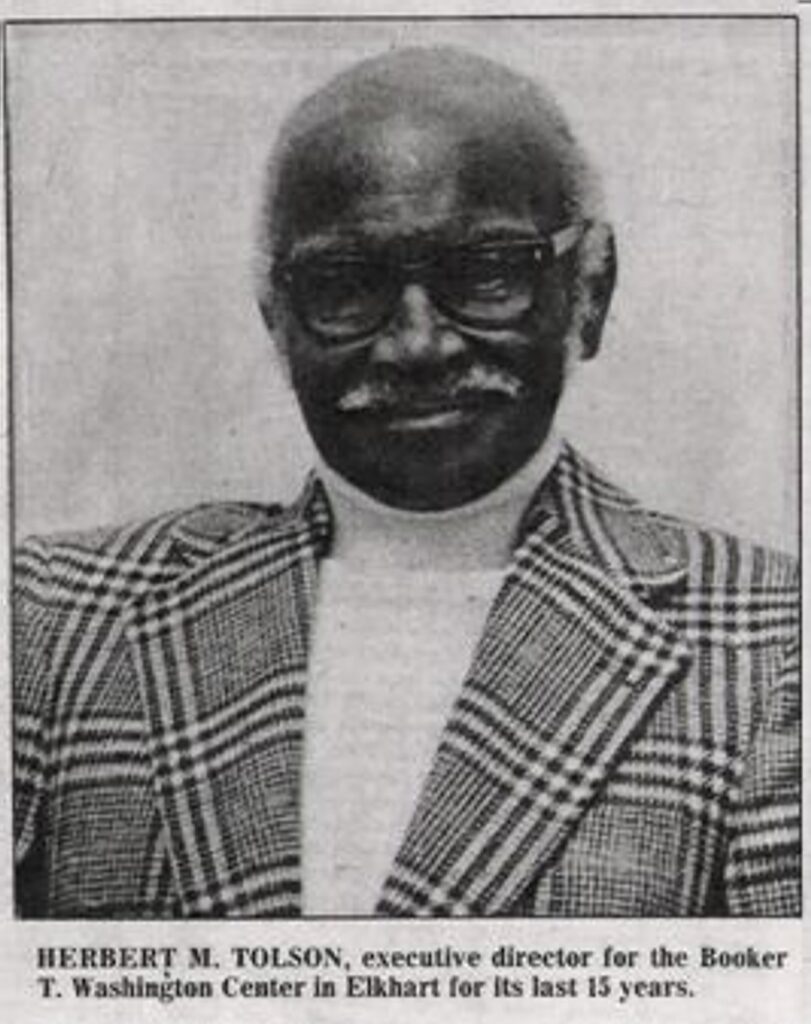
Ruth raised the couple’s children, Herbert Jr. and Princess Ruth. She returned to the workforce with the Elkhart Welfare Department, retiring in 1975. She passed away in October 1992.
The former BTW Center on St. Joseph Street became a residence. An urban renewal program eventually led to its demolition.
The BTW Center board shifted their focus and became a chapter of the National Urban League. The Elkhart Urban League tried to fill the gap left by the center’s closing and sale. For a new center, they bought the former Ullery Primary School on Cleveland Street.
Funding issues persisted and the overhead of the building became too much for the Urban League board. In 1986, they missed a filing deadline for the next year’s United Way funding. They also sparred with the national organization.
In November of that year, the National Urban League issued the Elkhart chapter an ultimatum. Pay back dues and disband voluntarily, or be dropped by the national group. “If the national wants to disenfranchise the local, fine,” local board member LeRoy Robinson said in a meeting. “But we’re not going to give it to them.”
“The building killed us. We ran around trying to save a building when the League is what we were supposed to save,” John Porter, another board member, said in a Nov. 21 Truth report.
That same day, the National Urban League voted to drop the Elkhart chapter after 23 years.
‘Major progress,’ setbacks and a new future
By 1988, Mayor James Perron was working on improving Elkhart’s neighborhoods, including the Benham area. Plans included a new community center to serve the area, just blocks from where the BTW Center stood.
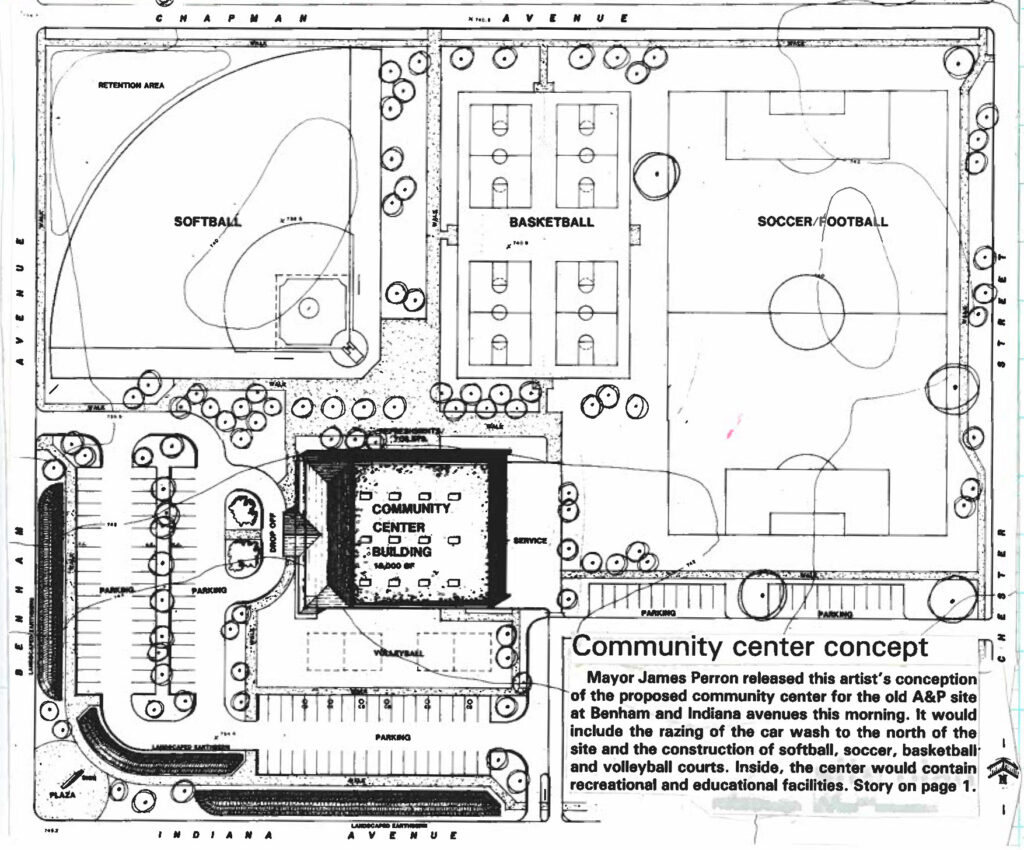
City officials broke ground for the Tolson Youth and Community Center on June 29, 1990. It came just over 34 years after the closing of the BTW Center.
“Elkhart is looking at major progress in its south central area,” Truth columnist Jim McNelle wrote of the groundbreaking.
The Tolson Center became what the BTW Center had been for a prior generation. Under the leadership of directors like Ben Barnes, Tolson became an after-school hangout. Pool tables, video games, study areas, and a gym served the neighborhood.
As the facility aged, the need for a new building became clear. The Community Foundation of Elkhart County created a new non-profit, the Tolson Center for Community Excellence They took on the Tolson Center from the City of Elkhart. Ground broke in May 2022 with the new space expecting to open in November of this year.